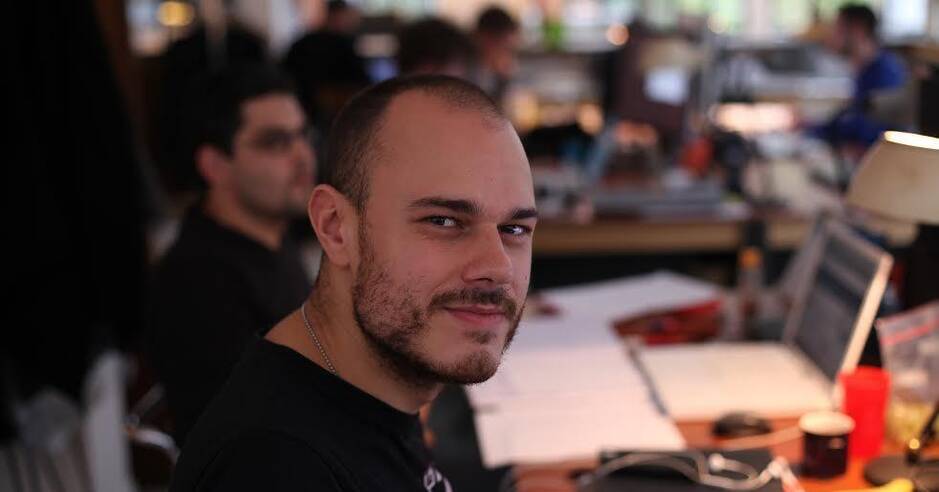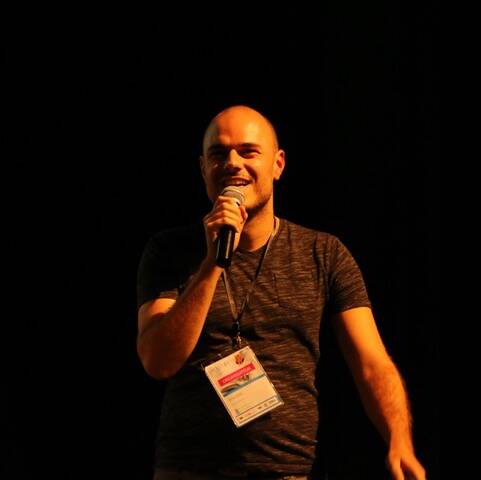[HEC Incubator] Rémi Rivas encourages our entrepreneurs to think outside the box!
We are very proud of our startups, but also of the people who work with them! Meeting with a Mentor from the HEC Incubator: Rémi Rivas

Rémi, we won't introduce you here at the HEC Incubator, but tell us quickly about your career path:
I started my studies in advertising, communication and business. I then went back to the workforce by working for Microsoft France. After this first experience, I chose to go back to school to study Design and in particular User Experience Design (UX Design) which I had the opportunity to work in an agency before starting my own business.
Today I am a consultant designer and I assist organizations in the design, production and marketing of new products and services. I help them to define, organize and implement their innovation projects using the approaches and tools of design thinking, lean startup and outcome driven innovation. I carry out this activity in partnership with Mathias Abramovicz, who also works with the incubator.
In what context do you work at HEC Paris and more specifically at the HEC Incubator?
I am a member of the pedagogical team of the Start-up Launchpad program, which brings together students from different majors, including Data Sciences and the dual curriculum with Polytechnique, as well as the development students from Ecole 42.
Under the direction of Guillaume le Dieu de Ville, we help nearly 150 students launch their startup in less than a hundred days. We accompany them from the detection of market opportunities to the marketing of a first MVP. I have the pleasure of teaching to the students and participating in the improvement of their educational curriculum. I also supervise the experts involved in the masterclasses and the follow-up of the projects.
In the HEC Incubator, I intervene as an expert during the Offices Hours to help startups deal with the various marketing and commercial problems they encounter throughout their development.
Why did you choose to take on this role?
Because it's exciting! As a consultant, accompanying entrepreneurs and helping them achieve their goals is the essence of my job.
This accompaniment makes it possible to develop with the founders a privileged relationship different from more conventional professional relationships. We do not encounter the same limits as with large structures, young companies are more flexible and more attentive.
This way of working also offers the possibility to observe more quickly the beneficial effects of our interventions, and gives the opportunity to test our tools and methods of accompaniment and to have concrete feedback. It is a real exchange where everyone learns from each other.
In your opinion, what are the particularities of the HEC Incubator's startups?
I would say that HEC alumni are not afraid to work hard. Years after leaving their school, they maintain a way of thinking that allows them to move forward quickly and to be consistent in their efforts. Generally speaking, they understand quickly, execute quickly and know how to take the necessary analytical distance. They have a good general culture and a very good understanding of the issues in their sector. The HEC network is also a real asset that enables them to make their projects rapidly progress.
But be careful though, because many of them are too perfectionist. They struggle to move from theory to practice, sometimes for fear of rejection. But selling is 90% rejection all day long. In entrepreneurship, you should never be afraid to go out into the field and sell what you haven't yet produced. That's how you learn and progress. I encourage them to get out of a scheme that is still too academic: the important thing is not to wait until you are sure you have the right answer, but to interact with your clients, to suggest things, to make mistakes and to learn the right lessons from them.
What is the advice you give most often?
"Call your customers! »
This is something that is valid at any stage of a project. Identify the people we hope to sell our product to and call them. It is essential to know their needs, the problems they encounter, to present our product to them to see how they welcome it and judge it. The value is in the customers' eyes. Involving them throughout the design process means understanding the benefits they perceive in relation to our offer, which we are most of the time quite incapable of perceiving ourselves.
Building a business is building a dynamic relationship with a community of prospects, customers and partners. The challenge is to maintain and grow these relationships of trust, which are essential to the sustainability of the business.
What is/are the most common mistake(s) made?
There are two of them:
- The first is to not go out and meet your clients, to fantasize about people's needs and to imagine that you've understood them without checking the veracity of your assumptions.
- The second is to not grasp the rules and the organization of your sector. Before jumping into the process of creating a product or service, some startups do not even make sure there is indeed an economic market for the type of solution they want to produce. Or worse: they surmise they can create this market themselves.
It is true that an entrepreneur must have faith in his convictions and ideas, but he must also be practical and pragmatic in order to be able to adapt his thinking and actions to the rules of the market in which he wishes to operate. In the end, it is this ability to adapt that will allow the project to survive.
The HEC Incubator is recognized for its tailor-made, à la carte and participative support. What does this mean for you?
We could hardly do more à la carte! There is no single accompanying program, the appointments are totally personalized, mainly because no two startups are at the same level of maturity. For the appointments, I interact with them like a coaching session. I ask them to arrive with a specific problem to be solved within a few hours. Their needs can be very diverse: redesigning the interface, writing a value proposition, marketing strategy, landing page, commercial positioning...
What does the ideal founding team look like to start a business?
It’s hard to find universal truths in the entrepreneurial sector. That said, if I had to launch a startup tomorrow, my ideal team would be composed of two to three people. More than that would be complicated and alone would be challenging as well.
I would chose a first person who has already took up commercial positions in the targeted sector, someone who has the tacit knowledge and has a network. The second person would be more geared towards marketing and client satisfaction and would work on community building and sustaining. Finally the third person would have advanced technical skills, their role would be to conceptualize the solution, ideally connecting pre-existing services at first.
Most often, what teams are missing is someone who is skilled at sales prospecting, who will manage to create relationships with key decision makers and to engage in negotiation. Feedback from sales representatives and buyers is a real added bonus for founders of startups.
Which startups surprised you the most?
I really like Okarito’s story from the Startup Launchpad. We saw them evolve extremely fast. At the start they came to the Launchpad wanting to code a chatbot which would book plane tickets for businesses.
While meeting people in charge of booking flights within companies, they rapidly identified 3 major problems they faced : informal organization of flight bookings and payments, a certain tendency from sales representatives to forget to supply invoices and supporting documents, and no easy way to check expenses related to additional fees and eventual upgrades.
In light of this observation, they set up a platform which enables office managers to create accounts and oversee them, automating payments et obtaining automatically-generating trip-related invoices as well, which will then directly be classified in the right folders!
This story demonstrates that when proactively meeting clients and putting yourself at their disposal, it is often far easier to satisfy their needs!
